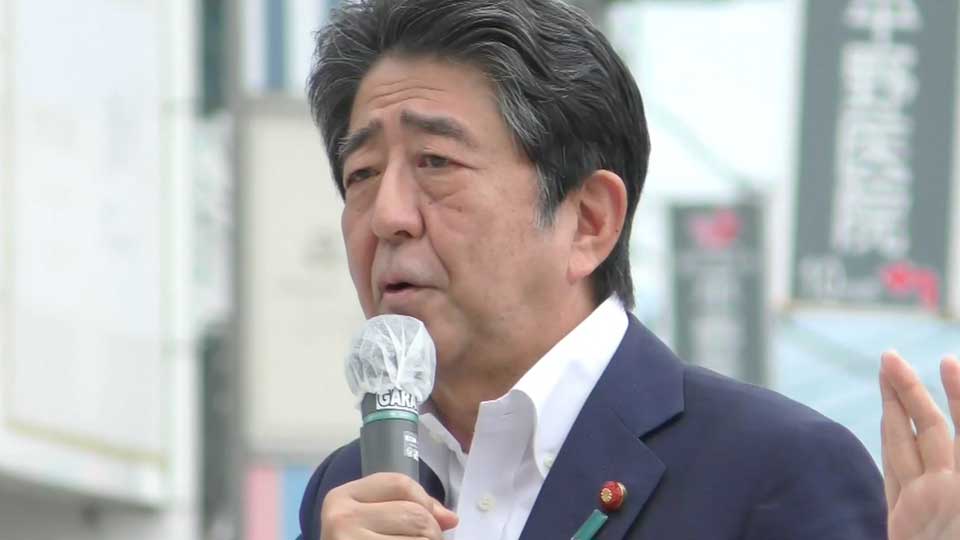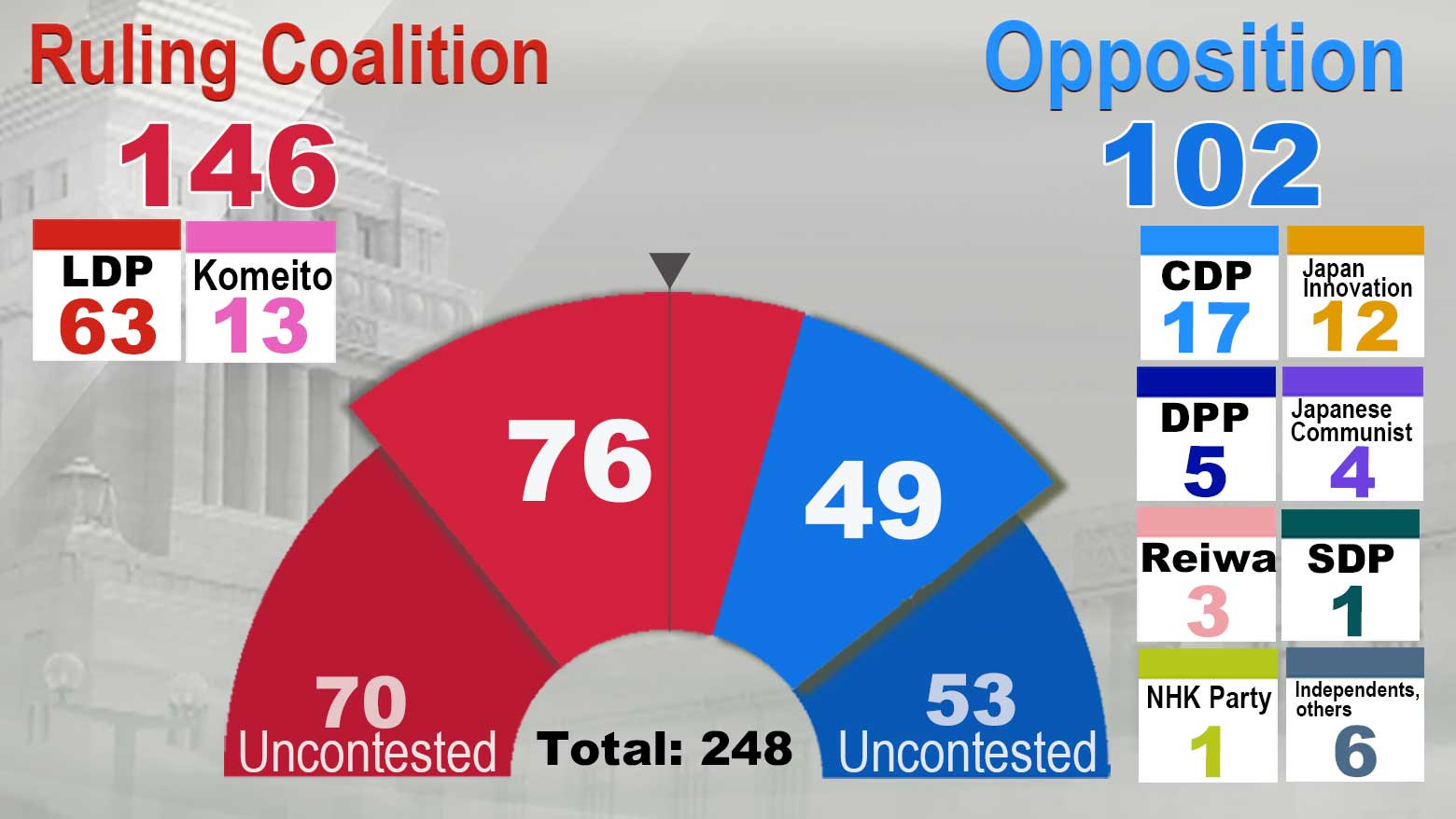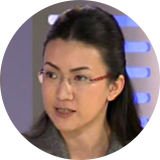Liberal Democratic Party
The main ruling LDP took more than half the open seats even without the help of coalition partner Komeito, maintaining control of the chamber.
Prime Minister Kishida says many challenges lie ahead. "The COVID-19 pandemic, Russia's aggression on Ukraine, the soaring cost of living...we believe we must work toward dealing with these major issues, as well as making an effort to revive the Japanese economy," he told a news conference.
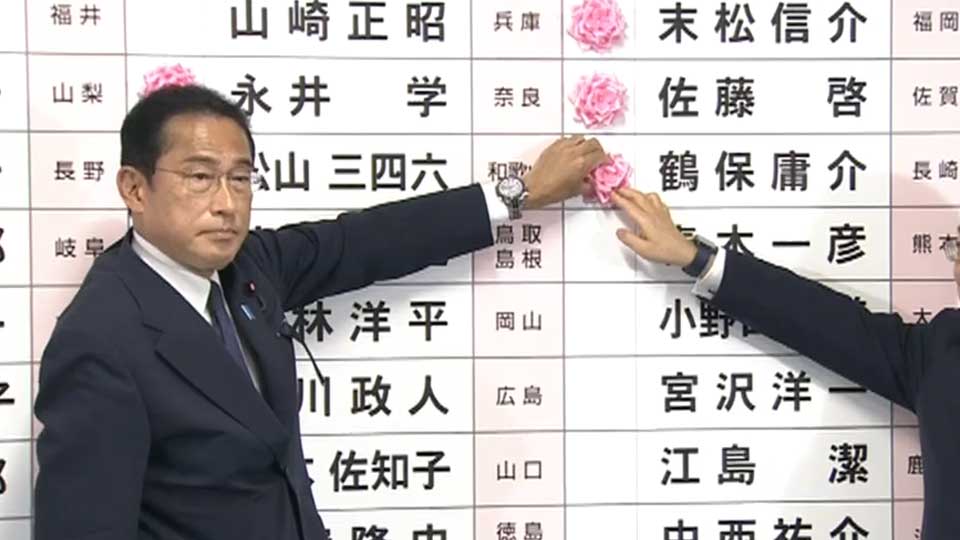
Komeito
Komeito lost one seat, but retains enough for the ruling parties to keep a stable basis in the chamber.
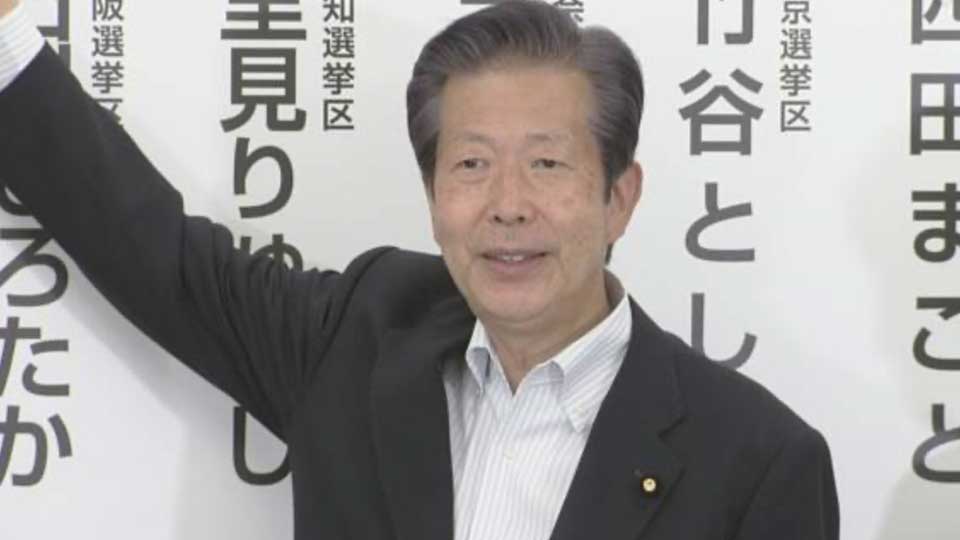
Constitutional Democratic Party
The largest opposition Constitutional Democratic Party won 17 seats, down from 23. Izumi Kenta led the party in a national election for the first time.
"It's painful to admit, but we have not reached the point where the public recognize us as a force that could govern the country," Izumi lamented.
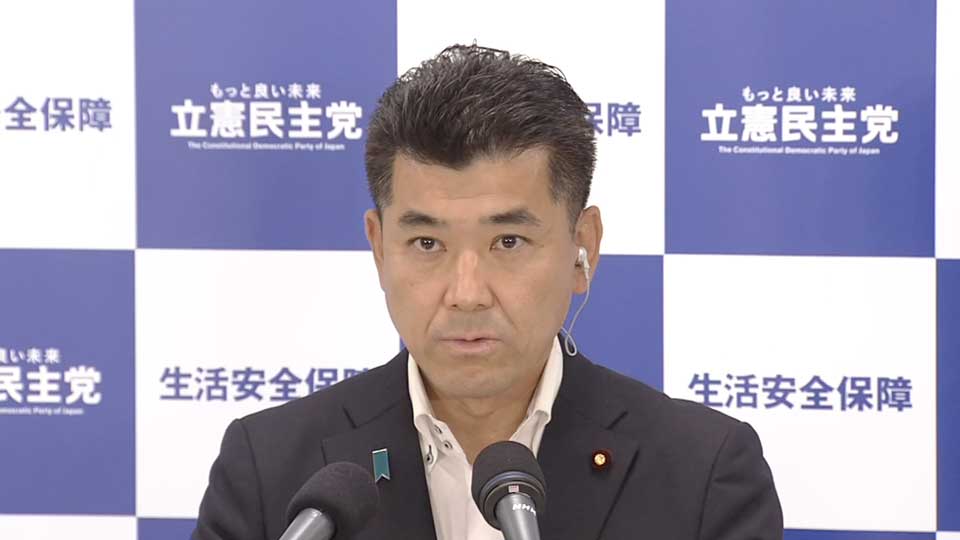
Nippon Ishin (Japan Innovation Party)
The Japan Innovation Party won 12 seats, doubling its presence in the Upper House.
"The LDP was overwhelmingly strong. As an opposition force, we were not strong enough," said party leader Matsui Ichiro.
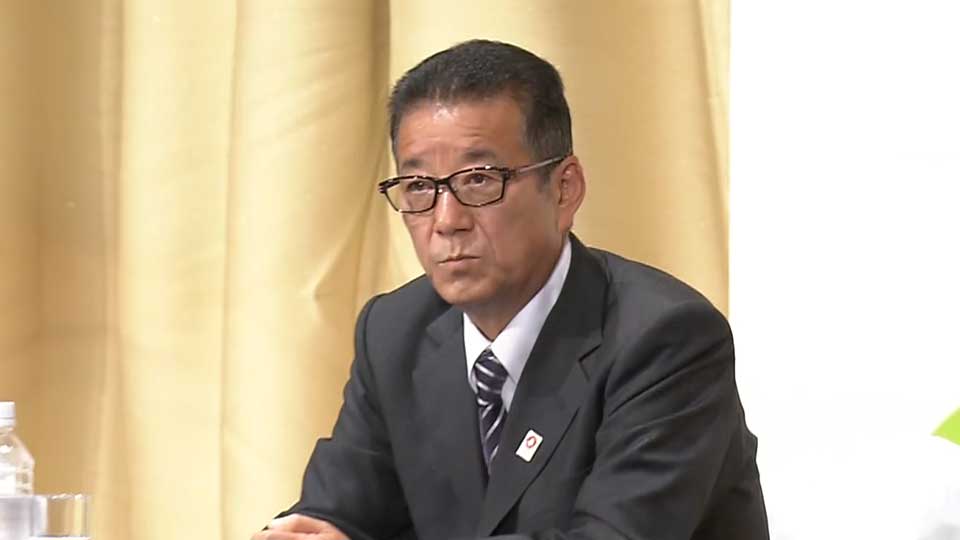
The LDP, Komeito, Japan Innovation Party, and the Democratic Party for the People are in favor of amending Japan's Constitution. Their combined seats are more than two-thirds of the chamber -- the threshold needed in both houses to start the process.
Voter turnout was 52.05%, 3.25 points higher than the last Upper House election three years ago.
Analysis: Masuda Tsuyoshi, NHK World Senior Political Commentator
Prime Minister Kishida has what's described as "three golden years" ahead of him. During that time period, he won't have a national-level election on the calendar.
Sunday's result means he has further stabilized his political base. Kishida now has a clear road ahead to tackle some of the biggest issues -- including security.
It is almost certain that we will see an expansion of the national defense budget, following through on an LDP pledge.
Kishida wants to bring that in line with NATO member countries, which typically spend at least two percent of GDP on defense. Japan's target for fiscal 2022 is about one percent.
Constitution
Amending the Constitution requires not only political support, but the backing of the public in a national referendum.
Kishida wants the basic law to better fit the times, and concrete discussions on that can be expected to get underway soon.
When he took power last year, he said he would essentially carry on with former leader Abe Shinzo's policies, including strengthening defense and revising the Constitution.
Those policies are not just inherited. They also match Kishida's own pragmatic style.
The current Constitution has not changed since it took effect after World War Two. Reforms have never been proposed in the Diet or put to a referendum.
Kishida has a new mandate from the public, so he is expected to push on from here. In that sense, one of the biggest turning points in the history of Japanese politics is now in sight.
Abe Shinzo's death
The election was held just two days after the tragic loss of former Prime Minister Abe Shinzo. His killing affected some of the final campaign events.
But the candidates were out in force on Saturday, sending a unified message that Japanese democracy will not yield to violence.
Still, the death of the country's longest-serving prime minister is certain to affect the future of Japanese politics.
In some respects, Kishida has made policy decisions and managed the party while relying on Abe and his influence. There is a void now, and Kishida may have to rethink the way he runs the government.
